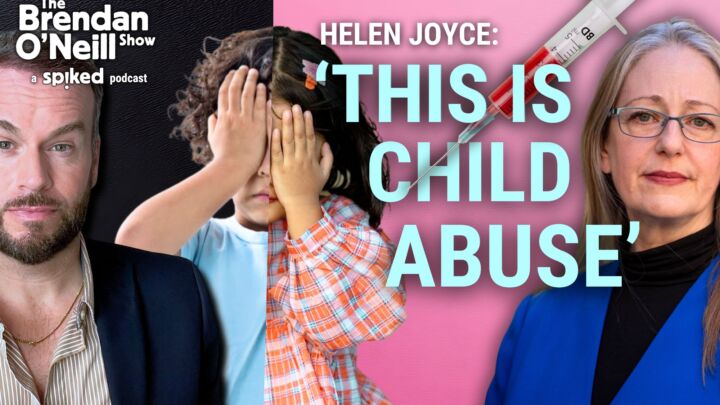Climate change isn’t starving us

Want unlimited, ad-free access? Become a spiked supporter.
A paper published today in the Lancet claims that, thanks to climate change, more than half a million people per year will die due to lower food availability in 2050. It’s a shocking figure. But a bit of digging quickly reveals that such claims should be treated with a whole tub of salt.
The paper is the result of entering estimates into a model on a variety of factors: how much temperatures and rainfall will change, the ability of the world to grow more food and the health impacts of eating one kind of diet over another. The headline results are that global food production will be 3.2 per cent lower thanks to a warming world than it would otherwise have been, with falls of four per cent in fruit and vegetable consumption and 0.7 per cent in red meat consumption. The world will produce a lot more food in 2050 than it does now, but not quite as much it would have done if global temperatures had remained the same. Or at least, that’s the claim.
First, a bit of perspective, with a few things we know. Currently, the global death rate per year is estimated at 7.8 deaths per every 1,000 people, or 0.78 per cent per year. It is also estimated that the world population will be around nine billion by 2050. So, if the death rate remained the same, by 2050, roughly 70million people would die each year. If the paper is correct, then based on these back-of-an-envelope figures, climate change would increase deaths by less than one per cent compared to a steady-temperature scenario.
Given that the figure of half a million is based on a whole host of assumptions and estimates, and that computer models are always imperfect, this tiny relative outcome is meaningless. The potential inaccuracies far outweigh the end result. But it gets worse. The biggest cause of death found (amounting to more than the final result) came from a decline in fruit and vegetable consumption – 534,000. The increased number of deaths from being underweight was cancelled out in the model by the fall in deaths from obesity and being overweight, presumably because chubby people would have less to eat. This assumes that eating a certain amount of fruit and veg, or being obese, are huge risk factors in and of themselves for health. These are contested ideas, to say the least.
In any event, the paper doesn’t seem to have considered the proper counterfactual – not just zero climate change, but the policies that could achieve zero climate change. What would happen to food availability in the future if we quickly dispensed with fossil fuels for transport, agricultural machinery, fertilisers, pesticides, etc? Surely that would reduce food production and raise prices? How does the world’s diet look in that scenario?
But the purpose of this paper is not to give us a sensible guide to the future. The aim is to produce a scary headline in order to galvanise action on reducing greenhouse gas emissions. Yet a dash for low-carbon alternatives would be much more likely to result in poorer diets and mass malnutrition. What’s healthy about that?
Rob Lyons is campaigns manager at Action on Consumer Choice.
You’ve read 3 free articles this month.
Support spiked and get unlimited access.
Help us hit our 1% target
spiked is funded by readers like you. It’s your generosity that keeps us fearless and independent.
Only 0.1% of our regular readers currently support spiked. If just 1% gave, we could grow our team – and step up the fight for free speech and democracy right when it matters most.
Join today from £5/month (£50/year) and get unlimited, ad-free access, bonus content, exclusive events and more – all while helping to keep spiked saying the unsayable.
Monthly support makes the biggest difference. Thank you.








Comments
Want to join the conversation?
Only spiked supporters and patrons, who donate regularly to us, can comment on our articles.